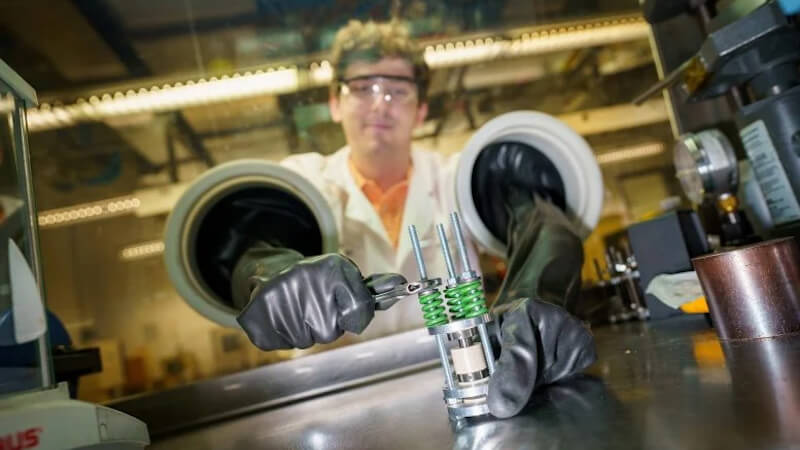
Researchers have developed the world's first sodium battery without an anode. It is intended to be a cost-effective and environmentally friendly alternative to lithium batteries.
Researchers at the Energy Storage and Conversion Laboratory at the University of Chicago and the University of California have developed the world's first sodium-based anode-free battery. The new approach could significantly reduce the price of fast-charging, large-capacity batteries. Possible application scenarios include electric vehicles or use as a battery for storing excess energy.
The combination of sodium, which is cheaper and more environmentally friendly than lithium, with an innovative design without an anode makes the batteries particularly promising. The research team developed a new architecture for sodium batteries that can remain stable for several hundred cycles. By removing the anode and using sodium instead of lithium, the battery is not only more cost-effective, but also safer and more powerful.
Sodium battery without anode enables high energy density
This is a crucial step towards meeting the global demand for batteries. The transition from fossil fuels to renewable energies makes battery technologies more important than ever. The problem with lithium-ion batteries, however, remains the procurement of the necessary raw materials.
Lithium is not only scarce, but its extraction is also harmful to the environment. Most deposits are located in the “lithium triangle” in South America. In contrast, sodium is widespread in the earth's crust and sea water. The new battery architecture does away with the conventional anode and stores the ions directly on a current collector. This enables higher energy density and lower production costs.
Sodium batteries are sometimes more efficient than lithium batteries
The team's approach was to create a current collector from aluminum powder. To turn the granular aluminum powder into a solid battery component, the team compacted the powder under high pressure. This method enables efficient cycling at low cost. Such innovations show that sodium batteries are not only feasible, but in some cases even more efficient than lithium batteries.
The vision is to develop a variety of clean and inexpensive batteries that store renewable energy and meet societal needs. The lead researchers have already filed a patent application for their approach. So we may see sodium-based batteries more often in our everyday lives in the future.
Also interesting:
Source: https://www.basicthinking.de/blog/2024/08/11/natriumbatterien-ohne-anode/


